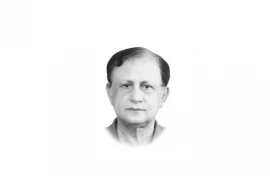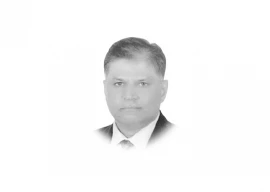
Imagine a system with many parts. Assume that these parts can operate both independently and interact with each other. At any given time, these parts can also be in different states (high, low, on, off, etc). Assume that actions of some of these parts are coordinated, some are random. Finally, assume that this system responds to both internal and external stimuli. Anyone who has worked with such a system, regardless of what the system does, would tell you that predicting the behaviour of a system like this would be highly improbable - perhaps impossible because of the exceedingly large number of possibilities and permutations. Whether the system is physical or biological accurate prediction of future behaviour is unlikely. The same goes for other complex systems like stock markets. Prediction is even harder for social systems with people and institutions. Given the complexity of human behaviour, motivations, emotions and impulses, it is not difficult to see why. Despite that, we have a large number of "senior analysts" who are doing exactly that - telling millions on TV and social media about how the future is going to unfold in the current dynamic environment. The algorithm of the "senior analysts" in looking into the crystal ball is not particularly original. It relies on an unnamed "inside source", combined with their perspective on the news, and who they trust. Each political and ideological group has its own trusted group of senior analysts. Loyal followers - many in my own orbit - treat their predictions as the ultimate truth. I am not sure if anyone has done a rigourous analysis on how often these analysts get things right when they see into the future, but I hope someone does that. I would not be surprised if the final success rate is not particularly impressive. I believe that many people - even if they are not pundits on TV in endless talk shows - would have the same (or even better) success rate if they were to bet on how things would turn out.
Here, I want to make two points. First, it is not that one should not hear the perspective of others, but rather to treat any predictions of a complex, multi-part, dynamic system with a high degree of suspicion. We should not associate any extraordinary ability with any analyst. The second point is about a bigger problem in how we see the world. Since we are uninterested in recognising the inherent randomness and complexity, we believe in grand theories of control and coordination. I grew up with such ideas. I continue to hear it from friends - both in Pakistan and in the diaspora. We feel that there is some grand plan playing out, a plan that is organised and executed up to the finest details, and there is an individual, an institution or a small group that has everything figured out, and everything is working according to this plan. For some, this select group that has everything figured out operates domestically. For others, it is international. And for some, it is a continuum that links both. Once we believe in this theory (i.e. existence of a master plan), the next logical thing is to "figure out" the plan, and this figuring out often fuels the prediction and analysis industry.
I recognise that uncertainty and ambiguity is not comforting, but what if people in high positions do not have the strings to shape the events to their will? What if, they are like everyone else, acting in haste, affected by emotions, likes and dislikes, reactions and impulse? What if no one, despite their claims, knows how tomorrow will materialise? What if they are no different than the rest of us?













COMMENTS
Comments are moderated and generally will be posted if they are on-topic and not abusive.
For more information, please see our Comments FAQ